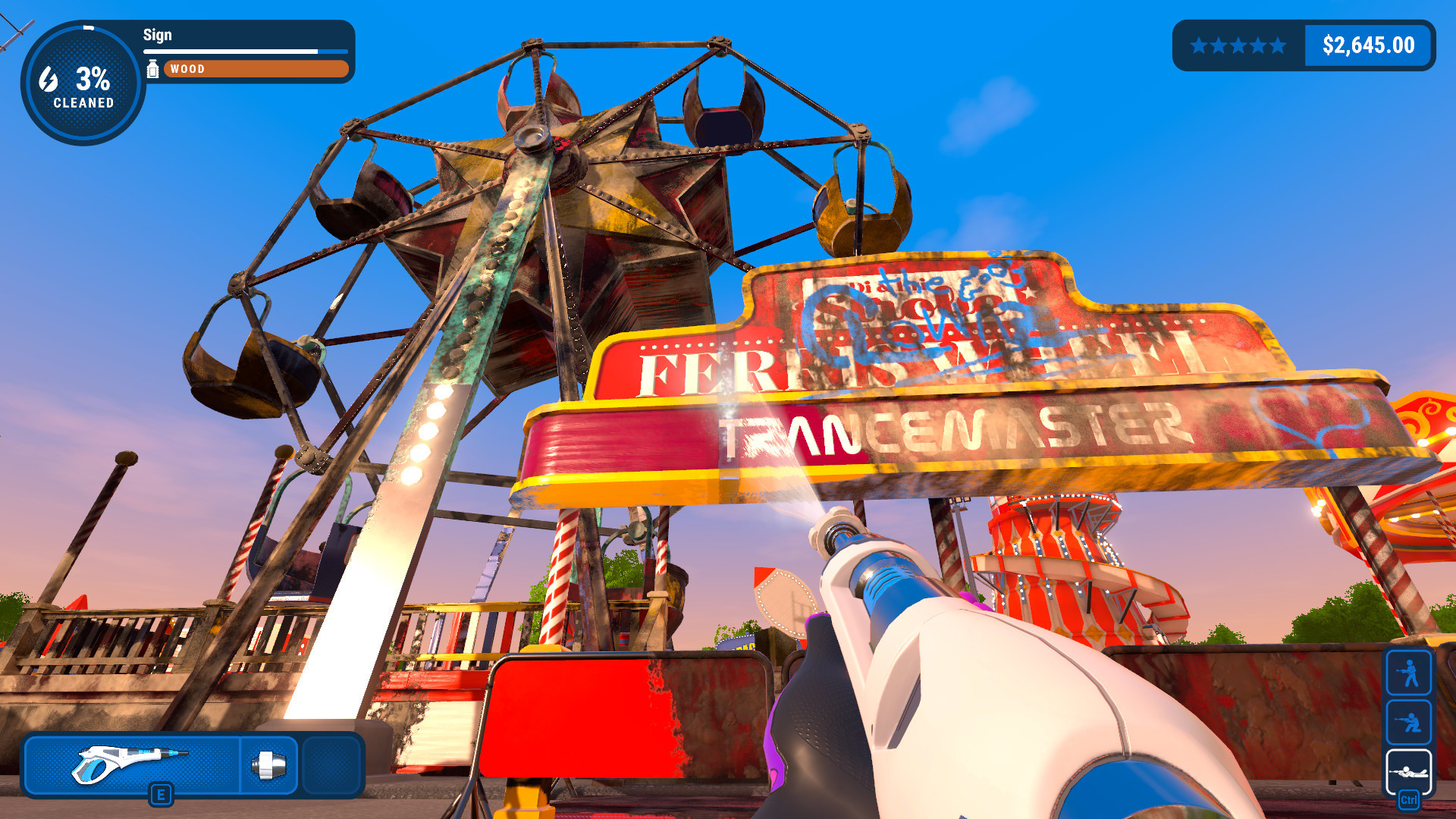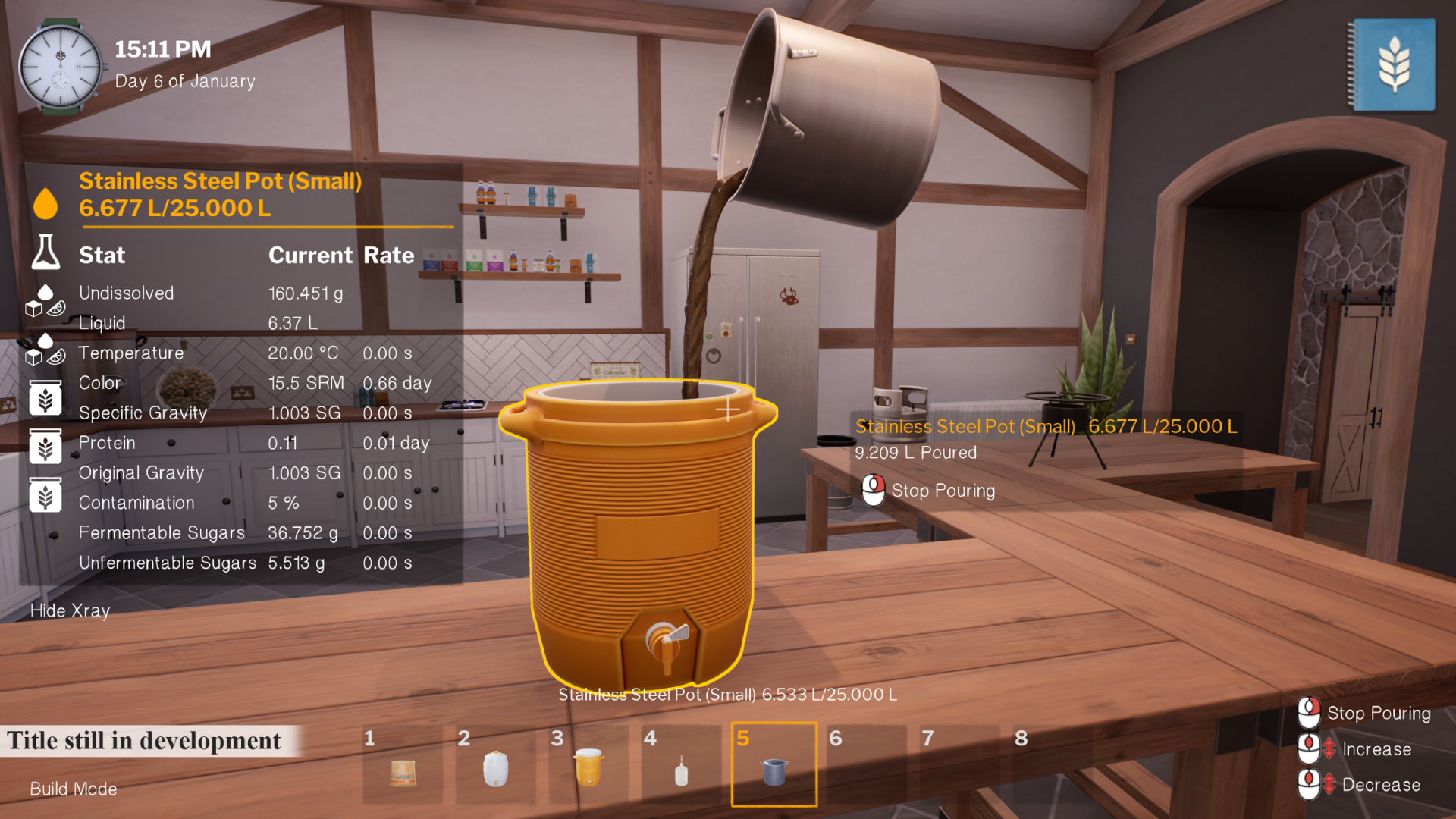The dull delight of humdrum work simulators
Honest labor

Sign up for breaking news, reviews, opinion, top tech deals, and more.
You are now subscribed
Your newsletter sign-up was successful
Gaming isn’t meant to be work - we come to games to relax, right? But lately, I’ve been playing a lot of work simulator games. As far as this incredibly postmodern genre goes, there are two main types of job sims: ones that give you a mundane task to complete in an interesting setting, like Viscera Cleanup Detail or Hardspace: Shipbreaker, then the ones that are simulations of jobs that you could conceivably do, like Brewmaster, Powerwash Simulator or the Car Mechanic Simulator series.
It’s easy to see why the first type is interesting - they give us access to careers and worlds that are out of our reach. They’re no different from any other fantasy, even if they cast us in the role of a general space laborer and dogsbody.
However, it’s the latter of those two types that I’m most interested in. When you get down to it, none of the individual component chunks of gameplay are particularly absorbing. I don’t enjoy bolting bits of piping together to move hot water into a fermentation container, which it felt like I spent a good 20 percent of my time in Brewmaster doing. I don’t enjoy undoing every single little bolt to remove pistons from a car’s engine. Yet these tasks and the many others that form like Voltron to create the core gameplay loops of seemingly dry simulator games create something truly engrossing. But why is that?
Rat race

It’s common in society to fetishize productivity. People are admired for working late, putting work before themselves, and chasing the sigma grindset. This is the biggest con that society has played on us; that work rules all. It’s garbage, of course, but the thing about internalization is that, even if we recognize how ridiculous this idea is, it’s still ingrained within us. There’s something to the idea that by playing these games, we can trick our brains into thinking we’re being productive, far more easily than something like Starfield can.
Often, work can be anything but satisfying. There are times when, no matter what we do to earn our bread, we come up against frustrating obstacles or difficult issues that seem to have no solution. This doesn’t happen with work simulators - all obstacles are solvable and can be overcome. And, even better, you can stop whenever you want.
It’s common in society to fetishize productivity
Another factor is that these games give us a way to live out more mundane fantasies. Sure it might not be as enlivening a fantasy as being a great warrior like Kratos or navigating a ship through the deep corners of space, but it’s a much more attainable fantasy. It could be that through Brewmaster, we discover a passion for homebrewing! Many of these simulators offer realistic, if simplified, processes that show what the reality of these activities involve. Sure, Car Mechanic Simulator isn’t going to leave you a qualified mechanic, but you will have a much better understanding of how engines work and the causes of some common issues.
Even with the inculturation of working yourself to death and the opportunity to try out new jobs, I think that there’s something else to work simulators that makes them interesting. Otherwise, these games would never be able to be anything other than a tiny niche, lacking the glamour of their AAA brethren. They still need to be well-made, and I think that’s the crux of it: work simulators are also, simply, good games.
Sign up for breaking news, reviews, opinion, top tech deals, and more.
Compelling Boredom

Games don’t need to be fun to be good games. Some, like Spec-Ops: The Line or Papers Please, can even make you feel bad about yourself for indulging in their core gameplay loop. Boredom, similarly, doesn’t mean that a game is bad. In fact, it can even be compelling.
There’s something to be said for doing a repetitive task; working on a production line, as parodied in a certain section of Arcade Paradise. That said, tere needs to be just enough variety in the repetition that you can still find some sense of creativity within it. Surely that’s an aspect of many otherwise stultifying jobs, right? In Brewmaster and Car Mechanic Simulator, there are elements of creativity that allow you to make the task at hand, be it a new beer or a project car, truly your own; selecting hops or ordering expensive turbos, respectively. Just try not to confuse the two, no one wants oil in their pint.

Through repetition, you can also improve your in-game performance. When you get down to it, this is the case in every game. The key ‘verb’ in Call of Duty might be ‘shoot’, rather than ‘maintain’, ‘clean’, or ‘brew’, but you’re still essentially repeating one task over and over. There are, it must be said, work simulator games that don’t really allow for this creativity. Powerwash Simulator doesn’t allow for creativity beyond daubing ephemeral drawings on a wall. Instead, that game harnesses its raison d’être; the singularly satisfying act of transforming a dirty surface into pristine perfection. It even gives you an eminently gifable timelapse of your work at the end of each job.
A boring film or TV show suffers because they’re essentially a non-interactive medium, aside from decoding the meaning, in a Death of the Author sense. Games, when emulating reality, must include boredom if they’re making an attempt at authenticity. Even action-oriented games, like the Arma series of military simulators, have long stretches of boredom in between firefights. To think of work simulator games as being a worse kind of game because they’re emulating something we’re familiar with is to offer a strange and short-sighted view of what gaming can really be. The Ancient Greeks believed in the idea of art as mimesis, an imitation of nature, and we spend a great chunk of our lives working, so guess what: games are going to imitate that.
Games, when emulating reality, must include boredom if they’re making an attempt at authenticity
As strange as it might seem, work simulator games might be among the most authentically ‘gamey’ games of all, despite often featuring a dull subject matter by comparison. They offer the satisfaction of a job well done, with none of the issues of real work. There’s no need to work late, no need to separate yourself from your friends and family to make a little more cash. Instead, you get the good parts of work, the mimetic imitation of daily life, and the opportunity to try out new jobs. All of these are wrapped up in games and gameplay loops that are, in the games I’ve mentioned, well made themselves, providing a feedback loop of fascination.
Looking for more immersive titles? Check out our lists of the best story games, best RPGs, and best single-player games.

Freelance writer Joe Chivers has been playing games since the mid-90s, starting out on his brother’s old Amiga. Since then, he has played too many video games and thought too much about them, and has been published in The Guardian, PC Gamer, and Metro. Corner him in a pub and he’ll talk your ear off about why games are a legitimate form of artistic expression.